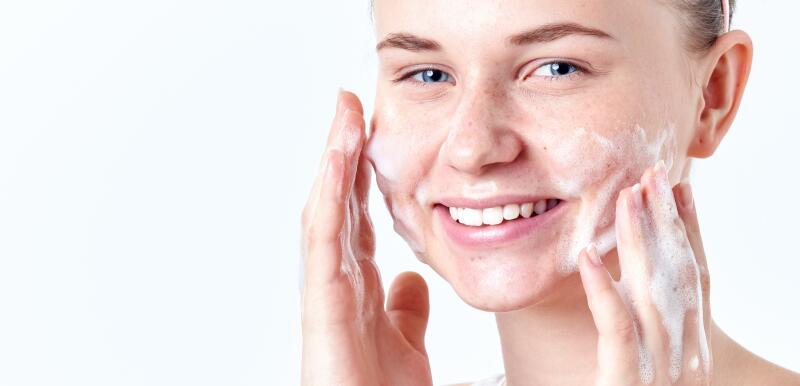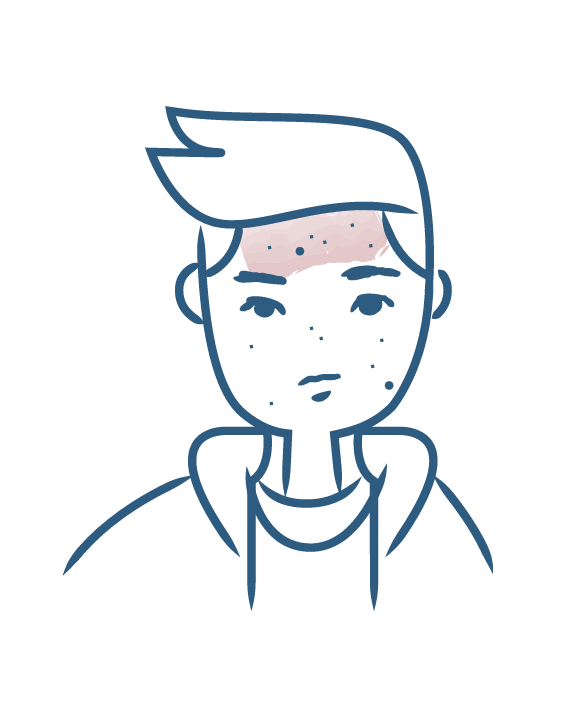-
Your concerns
Our articles to help you gain a better understanding
-
Our solutions
-
Ducray Dermatological laboratories
Our articles to help you gain a better understanding

Some people still believe that acne is caused by a lack of hygiene. This is because of oily skin and spots that can sometimes make the face look neglected. This is simply untrue! On the other hand, adopting hygiene practices specifically adapted to acne-prone skin is critical in improving the efficacy and tolerance of skin care and medicinal treatments. You must choose your acne soap carefully.
Soap and hygiene in general are the first way of fighting acne. An anti-blemish soap gently cleanses and purifies the skin. Ideally, use anti-blemish soaps that do not contain real soap molecules because these destroy the surface hydrolipidic film and dry out the skin: in response, the skin tends to produce even more sebum!
The most convenient daily acne soap is liquid and comes in the form of a cleansing gel. Other acne soaps exist, such as dermatological bars or no-rinse micellar water that is always soap-free and non-comedogenic.
In general, the anti-acne soap chosen should be used morning and evening on the face. This is often forgotten, but the skin produces sebum and impurities all the time, even at night! For other areas affected by acne, such as the back, one daily use of acne soap is enough, equal to the time it takes for a daily shower. You don’t need to use a large amount of acne soap, as this does not increase efficacy and can lead to skin irritation.
Rinse thoroughly if the acne soap rinses off, and gently pat the skin dry with a soft towel. Rubbing the skin may irritate it and rubbing spots will certainly not make them go away any faster!
Once skin is clean and dry, apply the care product or medication prescribed by your doctor.
Acne makes the skin fragile and sensitive. You should therefore avoid using soaps that are too aggressive or too alkaline, which can unbalance the skin's acid pH, accentuate the imbalance of the skin microbiome, and dry and irritate the skin. Inappropriate hygiene can lead to chronic acne, worsening acne and medication failures. Some examples of soaps to avoid: black soap, Aleppo soap and Marseille soap.
Oily or acne-prone skin

Oily or acne-prone skin
NEWSLETTER
Dermatological expertise
To better understand your skin and hair, discover our exclusive content and innovative care products designed to improve your quality of life..